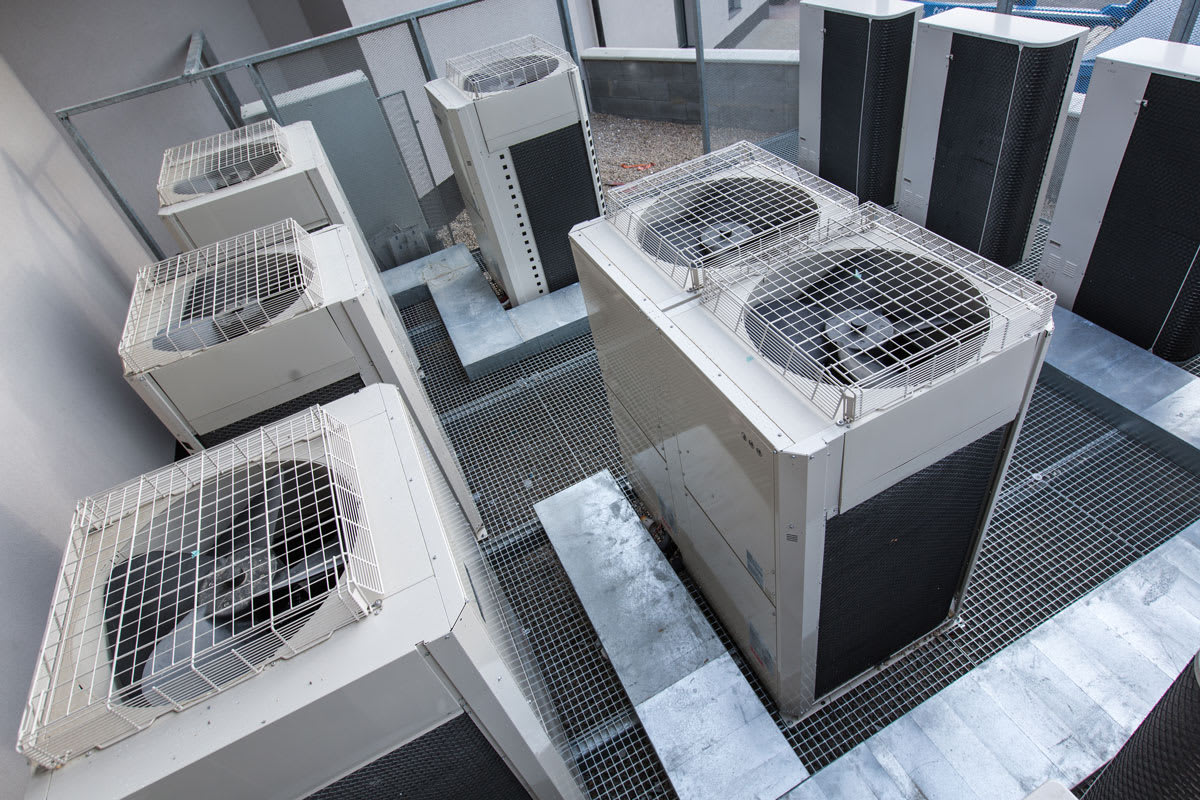In addition to the cool temperature required by the machines and also the people, some industries may require filtering out any pollutants, toxins, odours, viruses, and whatnot, that might be released by their processes. Problems like these and many others are aptly solvable by installing quality Industrial air conditioning units.
But, providing Air conditioning for industries is a large endeavor and is better delegated to the experts in the field. Coral Air provides 40 years of dependable Industrial Air conditioning repair, service & installation that will let you leverage the technology of air conditioning to provide a better and safer work experience. Our services include:



Based on the unique conditions of your industrial plant and the place, we thoroughly plan the air conditioning that needs to be placed. We base our calculations on various factors such as heating/cooling load required, your budget, ease, and access for periodic commercial air conditioning maintenance along with your aesthetic preferences. We also consider various legal regulations and adhere to the latest standards.
With the understanding of where, how and other aspects of air conditioning installation needs to be in your place, we proceed with the careful installation of the system. With our technicians carefully following the instructions of the manufacturers and the skills they have, there is no room for any mistakes!
An industrial air conditioning system is a specialized type of air conditioning system used in large commercial and industrial buildings. Typically, these systems are installed in areas with high humidity, such as kitchens and restrooms, to ensure that the air is comfortable and sufficient for people to breathe. An industrial air conditioning system can include features such as humidification, dehumidification, and cooling. These systems are often installed in new buildings or buildings undergoing renovations to provide improved indoor comfort for the occupants.
Industrial air conditioning requirements vary based on the type of facility, but generally include:
In addition to these basic requirements, industrial air conditioning must also be cost-effective and suitable for specific locations and applications. For example, indoor climate systems may need to be designed for indoor use in cooler climates where outdoor temperatures are lower than those found indoors. In contrast, outdoor air conditioning systems may be needed in warmer climates where outdoor temperatures are higher than those found indoors. So the requirements of an industrial air conditioning system will depend on the context in which it is being used.
Air conditioning is a necessity for the industrial sector. It provides workers with a safe and comfortable environment to work in, reducing the risk of occupational injuries and illnesses. In addition, air conditioning helps to reduce energy consumption and operating costs for businesses by maintaining a comfortable temperature in the workplace. Finally, air conditioning helps to maintain optimal working conditions for employees by providing a better indoor environment for them to perform their tasks more effectively.
The application of industrial air conditioning can be broken down into three main categories:
The main difference between industrial AC and domestic AC is power consumption. Domestic systems consume less power because they generally provide only limited amounts of cooling or heating for specific rooms in a home or building. On the other hand, industrial ACs can be used for large-scale cooling or heating applications such as air-conditioning for offices or manufacturing facilities. They can provide greater levels of cooling or heating for large areas of a building at a lower cost per unit of energy consumed compared to domestic systems.


